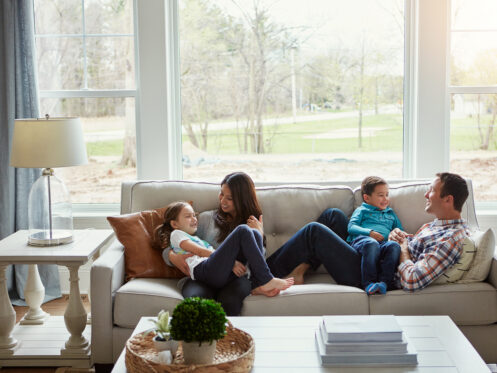The easiest way to protect your home against carbon monoxide is to invest in carbon monoxide detectors. Carbon monoxide isn’t visible, nor does it have a smell. However, high amounts of it in your home can lead to serious health issues. This is because this poisonous gas hinders oxygen transportation in the body. The symptoms of carbon monoxide poisoning can include headaches, confusion, dizziness, nausea, unconsciousness, and death. Fortunately, there are several ways to protect your Abilene, TX, home against carbon monoxide (CO) leaks.
1. Install and Test CO Detectors
Install certified carbon monoxide (CO) detectors to ensure household safety. These detectors meet recognized standards such as those by Underwriters Laboratories (UL) and provide an early warning system against CO leaks. Consistent testing guarantees their functionality, enabling prompt response in the event of increased CO levels.
2. Invest in HVAC Maintenance
Regular HVAC maintenance quickly solves problems to reduce the danger of carbon monoxide leaks. The experts perform thorough checks, clean components, and make necessary adjustments, ensuring the safe and efficient operation of the system. How often to invest in maintenance depends on how much wear and tear the system endures. Ideally, you should invest in maintenance at least once a year to help protect the home against carbon monoxide.
3. Ensure Proper Ventilation
In addition to regular HVAC maintenance, investing in regular ventilation inspections is essential. During the inspections, experts ensure the vents and chimneys don’t have any obstructions. They also examine the ventilation system for indications of degradation, leaks, and blockages. Furthermore, these inspections involve checking the combustion of appliances and exhaust systems and fixing problems immediately.
4. Never Use Gas Stoves for Heating
Inadequate ventilation or combustion can cause CO accumulation in gas stoves and ovens. These machines aren’t meant to run continuously and may generate dangerous amounts of carbon monoxide, so using them as heaters is risky. To minimize the possible consequences of CO exposure, always use gas appliances as designed and never depend on them for warmth.
5. Use Generators Outdoors
Using a generator indoors or in a confined area releases carbon monoxide gas, which can build up to harmful amounts. Using it outside guarantees enough ventilation, which enables the CO to evaporate safely. Keep generators far from any openings, such as windows or doors, to prevent gas from seeping into the house.
6. Be Cautious With Space Heaters
Electric space heaters that come equipped with safety features such as tip-over switches and overheat protection are the safest options for use inside. Never use a gas space heater inside. Doing so dramatically increases the danger of carbon monoxide poisoning. Proper ventilation, separation from combustible objects, and adherence to manufacturer instructions are all necessary for safe space heater operation. Turn them off before you leave the room or go to sleep, and never leave them on without someone checking on them. Conducting regular inspections and following all safety protocols is essential to avoid carbon monoxide poisoning and fires caused by heater misuse.
7. Secure Flue Damper
A flue damper must be in good working order to exhaust combustion byproducts, such as CO, outside safely. Maintaining flue dampers requires regular checks for deterioration or dysfunction. When not in use, ensure the damper shuts firmly and performs smoothly. Get in touch with a repair or replacement service as soon as possible if you notice any damage to the flue damper.
8. Indoor Air Quality Improvement Tips
The following measures make homes safer and healthier by decreasing the likelihood of CO exposure. Make sure all of your home’s carbon monoxide detectors are working correctly. Use exhaust fans and open windows to increase airflow. Keep all combustion appliances in good working order, and never smoke indoors. Keep indoor humidity levels low to avoid mold formation, and use air purifiers to eliminate contaminants. As an added precaution, dust and clean often, and think about bringing in some plants that help purify the air.
Quality Cooling & Heating excels at protecting homes from CO leaks. We also offer a variety of heating and cooling services, including duct cleaning, emergency repairs, and energy-saving solutions. Contact us now to learn how to make your home safer with effective carbon monoxide detection.


